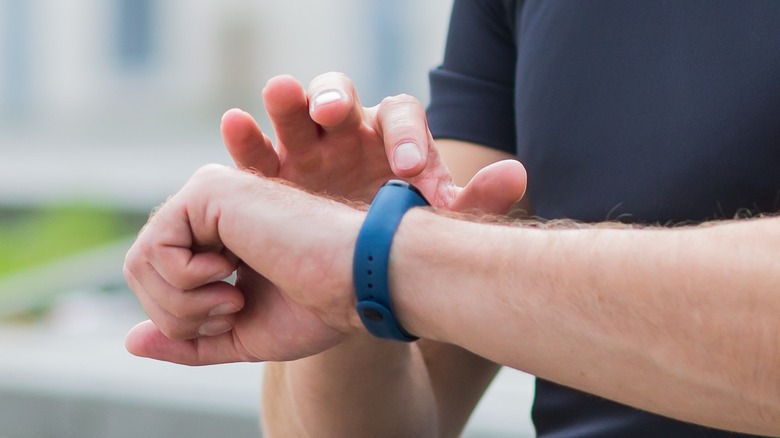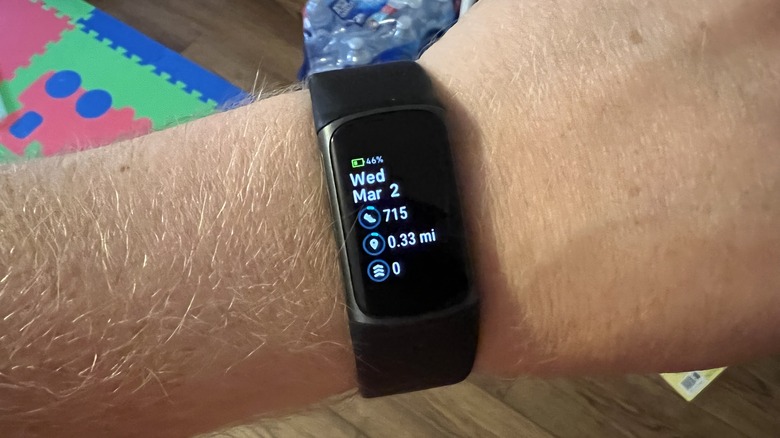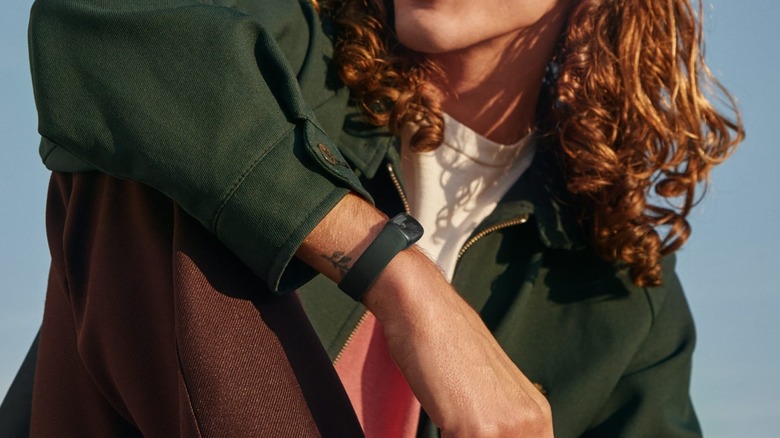The 3 Best Fitness Trackers (That Aren't Smartwatches) For 2023
Tracking the functions of your body down to the tiniest detail has never been easier, with a wide variety of devices capable of at least tracking the basics like step counts and estimated calorie consumption. Paired with fitness apps and dedicated peripherals like smartwatches, you can now get highly detailed data on your activity, tracking everything from your location to your heart rate, heart rhythm, blood oxygenation, sleep quality, and even your menstrual cycle.
Smartwatches also act as an extension of your phone, allowing you to control apps and other functions without interacting with your phone directly. However, many users don't always want all the added complexity and clutter of a full smartwatch. If you want a simple, low-profile yet rugged device that will track your activity and help you stay healthy, a fitness tracker is usually the way to go.
Purpose-built fitness trackers come with many benefits over their smartwatch counterparts — they tend to be smaller, significantly cheaper, and last far longer on a single charge, all while performing their tracking functions at the same level, if not better. Naturally, this can come at the cost of some functionality and aesthetic appeal compared to smartwatches so you can expect the most important health-related functions but not a whole lot more from a fitness tracker.
Fitbit Charge 5
The Fitbit Charge 5 is the top-line fitness tracker Fitbit offers, featuring a wide range of advanced tracking features and sensors. Unlike other cheaper trackers, the Fitbit Charge 5 includes its own GPS sensor, and it doesn't rely on your phone's sensors, unlike some lower-cost fitness trackers. It also includes NFC connectivity, which allows you to use Fitbit Pay, unlike the Luxe and Inspire 3.
With its more comprehensive tracking capabilities and inclusion of features such as screening for atrial fibrillation, the Fitbit Charge 5 is geared towards users who are both familiar with fitness trackers and looking to track and optimize their health. Aside from these extra features, the Charge 5 also includes the usual fitness tracking capabilities, such as accurate step counts, heart rate, blood oxygenation, and menstrual cycle tracking.
Where the Fitbit Charge 5 really shines is the quality of the device itself. Compared to the plastic many other fitness trackers use, its case is made of aluminum and comes standard with a peg-and-loop fastener instead of a standard buckle. If you prefer the look and feel of a different strap, plenty of options are available from both Fitbit and 3rd party manufacturers. The display is also high-quality, with clear graphics and enough brightness to be clear even in bright sunlight. Fitbit claims the battery will last seven days, though you should probably expect a little less.
Fitbit Inspire 3
The Fitbit Inspire 3 is the most affordable product for adults in the Fitbit tracker range, and a good introduction to the Fitbit ecosystem, providing all of the basic functions expected of a fitness tracker priced at $100. With a battery life of about eight days – the longest of any current Fitbit – and a plethora of features available for free and more that can be unlocked with a Fitbit Premium subscription, the Inspire 3 is a great beginner fitness tracker.
In addition to features like automatic exercise tracking and detailed sleep tracking that are best-in-class, the Inspire 3 tracks all of the usual data points one expects from a fitness tracker in 2023. It covers areas such as blood oxygenation, heart rate, heart rhythm, skin temperature, and menstrual health, with even more features unlocked with a Premium subscription. Luckily for people entering the ecosystem and who don't want to commit to a Premium subscription right away, the Inspire 3 comes with six months of Premium access, with the option to add one year of Premium and a two-year Protection Plan for just $29.98 on the Fitbit website.
Access to the Fitbit app and Premium features is one of the main perks of the Inspire 3, as it grants you access to the ecosystem for much less than its pricier siblings, the Luxe and Charge 5.
Amazfit Band 7
At just $50, the Amazfit Band 7 offers fantastic value for money, providing all the usual tracking options, along with excellent battery life, with real-life daily use in line with the estimates the manufacturer makes — you should get at least two weeks from a single charge.
For $50, you get build quality and features roughly on par with offerings from larger, significantly more expensive brands like Fitbit without buying into an ecosystem or having features locked behind a paywall. The Amazfit Band 7 boasts a serious set of tracking features such as heart rate, blood oxygenation, stress, and menstrual cycle tracking. On top of these, it also has 120 sports modes which include even niche areas like parkour and chess. Its tracking capabilities aren't limited to your active hours, though, with comprehensive sleep tracking covering each stage of sleep and areas such as breathing quality.
The Amazfit Band 7 is ideal for someone looking to get into regular fitness tracking without having to shell out a lot of money on a first purchase. For instance, you can forego the myriad sports modes and just use their PAI system, which gives you a daily score based on your activity levels, taking everything you do throughout your day into account. This can be a good starting point for increasing your daily activity before exploring other options available.


